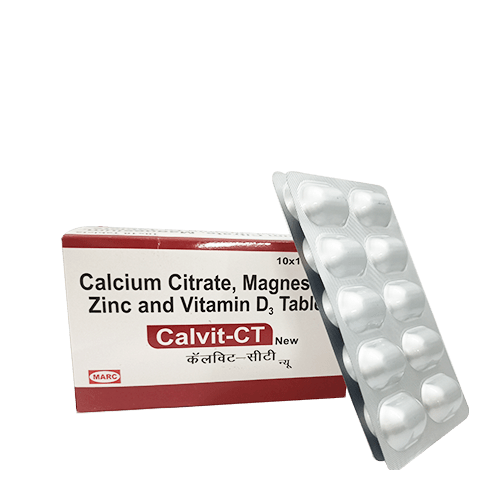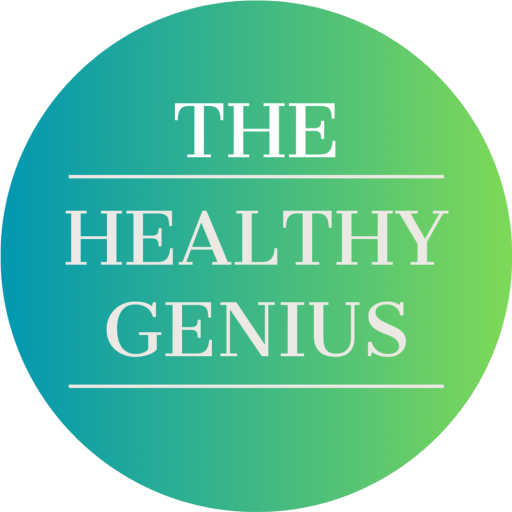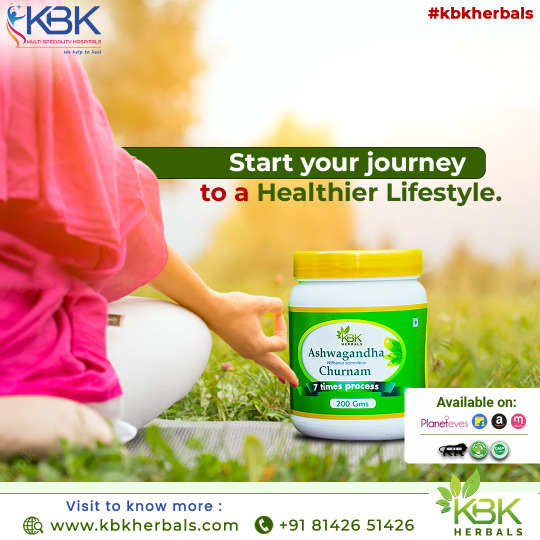#prevents inflammatory diseases
Text
Calvit CT Tablet | Buy strip of 10 tablets at best price in India | Marccure
Calvit CT plays a vital role in bone growth and development. It prevents a low level of calcium in the body and makes your body relax which is adequate for growth & development. It contains calcium citrate which is used to treat conditions caused by low calcium levels such as bone loss (osteoporosis), weak bones (osteomalacia/rickets), decreased activity of the parathyroid gland (hypoparathyroidism), and certain muscle diseases (latent tetany).
The zinc and magnesium compound makes the immune system strong , gives better metabolism and prevents inflammatory disease.
Use of calvit CT:
It is used to maintain bone density.
Also used for calcium deficiency in the body.
Prevent osteoporosis.
Makes bones strong.
Increased the activity of thyroid gland.

#Calvit Ct#calvit ct tablet#Calvit uses#calvit ct side effect#osteoporosis#osteomalacia/rickets#hypoparathyroidism#muscle diseases#zinc and magnesium compound#strong immune system#better metabolism#prevents inflammatory disease#maintain bone density#cardiovascular health#Increase metabolism#prevents inflammatory diseases#bone health#health & fitness#beauty
0 notes
Text
Idk if there's enough people talking about what a gigantic energy drain Complex PTSD is. It's not just one single traumatic event, it's having lived in a traumatic situation for a long time. And in the case of child abuse, your entire formative life period. Everything is a trigger, anxiety is your default, and your brain keeps trying to keep you safe by yelling at you about everything you're doing "wrong", which will lead to pain. Your brain is a constant war zone, braced for attack, rarely relaxed, at least some part of you always hypervigilant. The stress it takes on your body is insane. It's why trauma is linked to autoimmune issues, heart disease, type 2 diabetes, and, according to one study, cancer.
Physical disability leaves you even more vulnerable and less able to live up to the impossible standards of control and "correct" behaviour your brain insists on, not to mention the free gift given to all patients of chronic illness that is medical gaslighting and patient-blaming, all of which simply compounds the trauma. Reduced physical and mental health obviously leads to systemic risk factors such as inability to pursue academic and professional qualifications, poverty and financial struggle, malnutrition, becoming unhoused or bad living conditions, exacerbated medical issues and further lack of medical resources, reliance on welfare and care networks, and becoming trapped in codependent, abusive or toxic relationships. The knock-on effects are endless.
This is all to say— if you're wondering why you can't seem to do more than the bare minimum every day when you haven't been diagnosed with a physical illness, or you're "not that disabled", or you think your symptoms are "just psychosomatic" (which means your brain is under so much intolerable stress that it's started taking a chair to the windows and destroying the furniture just to get you to NOTICE AND MAKE IT STOP): the answer is that your body is actually struggling under the kind of stress that kills trained soldiers and disables them for life. So stop trying to convince yourself that you're just not trying hard enough when what you really, desperately need to get your life on track is community, care, rest and ease.
#the medicalization of mental health is just capitalism trying to cover its ass#isolating physical and mental illness makes the entire medical complex an abject failure actually#''disease'' should refer to a state of being rather than its outcome imo#i've never heard of one that wasnt simply the visible symptom or ramification of the core problem or situation#like I'm grateful for the anti-depressants and bipolar meds and all but i just think a lot more problems would be solved#if someone gave me a place to live with peace and quiet and living assistance#i mean I'd still need the meds its not either/or#but I wouldn't need to be on ever increasing doses for the rest of forever#also if there was some kind of holistic understanding of health that bridged psychiatry with the fest of the medical complex#they could have taken one look at how badly I broke down at age twenty and worked to prevent my inflammatory disease being triggered#or at least not gaslit me about it for seven years until i nearly lost a colon#you just absolutely bloody cannot treat health as separate from socioeconomics and community support#this shouldn't be new or revolutionary#actually cptsd#complex ptsd#ableism#disability#healthism#child abuse#emotional abuse#domestic abuse#intimate partner violence#parental abuse#chronic illness#spoonie#knee of huss#mental illness#autoimmune disease#social justice#psychosomatic
26 notes
·
View notes
Text

In recent times, the incorporation of CA 125 into comprehensive full-body health examinations has gained popularity as part of a proactive approach to monitoring overall well-being. While CA 125 is well-known for its association with ovarian cancer, its inclusion in broader health assessments extends its usefulness beyond specific cancer screenings.
1. Early Detection of Gynecological Cancers: One of the primary advantages of integrating CA 125 into full-body health checkups is the potential for early identification of gynecological cancers. Elevated CA 125 levels may not only suggest ovarian cancer but also act as an alert for other gynecological malignancies like endometrial or fallopian tube cancers. This holistic approach enhances the likelihood of detecting these cancers in their early stages, enabling timely intervention and improving treatment outcomes.
2. Monitoring Reproductive Health: Beyond cancer detection, CA 125 plays a role in monitoring reproductive health. For women facing conditions such as endometriosis or pelvic inflammatory disease, heightened CA 125 levels could offer valuable insights into the health of reproductive organs. Regular inclusion of CA 125 in health checkups enables a more comprehensive assessment of reproductive well-being, aiding in the early identification of reproductive health issues.
3. Indirect Indications of Inflammation and Other Conditions: CA 125 is not exclusive to gynecological concerns; its elevation can also be linked to inflammatory conditions and other noncancerous health issues. Including CA 125 in full-body health checkups provides a broader perspective on inflammation within the body, potentially indicating underlying health conditions such as liver disease or inflammatory disorders. This indirect insight enhances the diagnostic value of a full-body health assessment.
4. Holistic Approach to Cancer Prevention: Comprehensive health checkups aim to offer a holistic view of an individual's health, and the inclusion of CA 125 aligns with this goal. By monitoring CA 125 levels alongside other health parameters, healthcare professionals can adopt a holistic approach to cancer prevention. Identifying potential risk factors early allows for tailored preventive measures, such as lifestyle modifications and targeted screenings, contributing to an individualized healthcare strategy.
5. Psychological Well-being and Patient Empowerment: The incorporation of CA 125 in full-body health checkups not only serves clinical purposes but also contributes to psychological well-being. For individuals with a family history of ovarian cancer or other gynecological conditions, the regular monitoring of CA 125 levels provides a sense of empowerment and control over their health. Knowledge and early detection empower individuals to actively engage in their healthcare journey.
6. Collaborative Care and Informed Decision-Making: Collaboration between patients and healthcare providers is crucial for effective healthcare. Including CA 125 in full-body health checkups fosters a collaborative approach to care. Informed decision-making becomes possible as patients and healthcare professionals work together to interpret CA 125 results in the context of overall health, allowing for more personalized and targeted healthcare interventions.
7. Research and Advancements: The integration of CA 125 into full-body health checkups contributes to ongoing research and advancements in the field. The data collected from these comprehensive assessments, including CA 125 levels, can inform research on the interplay between biomarkers, overall health, and specific conditions. This continuous feedback loop supports the evolution of healthcare practices and diagnostic strategies.
There are many good hospitals in Bangalore that offer health checkup packages for females and include CA 125 test, such as a full body health checkup at Manipal Hospital Sarjapur Road in Bangalore.
#CA 125#cancer screening#gynecological cancer#reproductive health#ovarian cancer#endometriosis#pelvic inflammatory diseases#cancer prevention#biomarkers#full body health checkups#regular health checkups#health checkup packages
0 notes
Text
The Healthy Genius Podcast #1 Unlocking Longevity
Unlocking Longevity: The Okinawa Diet and the Secrets to a Centenarian Life
Welcome to The Healthy Genius Podcast, where we explore fascinating topics related to health, wellness, and longevity.In today’s episode, which is our first, titled Unlocking Longevity: The Okinawa Diet and the Secrets to a Centenarian Life,we dive into the remarkable Okinawa Diet, renowned for its association with long…

View On WordPress
#Active Lifestyle#Aging Gracefully#Aging with Vitality#Anti-Aging Diet#Anti-Aging Secrets#Anti-Inflammatory Diet#Balanced Diet#Blue Zones#Centenarian Lifestyle#Disease Prevention#Healthy Aging#Healthy Aging Habits#Healthy Aging Tips#Healthy Eating Habits#Healthy Habits#Healthy Heart#Healthy Lifestyle#Healthy Living Inspiration#Healthy Recipes#Holistic Health#Japanese Diet#Japanese Lifestyle#Long Life Tips#Longevity Benefits#Longevity Factors#Longevity Foods#Longevity Genes#Longevity Research#Longevity Secrets#Longevity Strategies
0 notes
Text

#Herbs may aid in the prevention and management of heart disease#cancer#and diabetes. It may also aid in the prevention of blood clots and have anti-inflammatory and anti-tumor qualities.#.#healthylifestyle#healthyfood#fitness#health#healthyhair#healthyliving#fitnessmotivation#motivation#weightloss#workout#fit#wellness#lifestyle#healthyeating#gym#nutrition#food#love#weightlossjourney#vegan#instagood
0 notes
Text
MORE ABOUT THIS↙️
Do you Love making natural remedies?
Did you know that you can easily make this powerful remedy at home?
you will only need :
• 1 orange 🍊
• 1 Lime 💚
• 1 Lemon 🍋
• Onion skin (From 1 🧅)
• Big chunk of ginger 💛
• 5 willow leaves 🍃
• 1/2 tsp Turmeric 🧡
• Pinch of black pepper 🖤 (to activate Turmeric)
• More than pinch of Chilli pepper 🌶
1. Drop them all into a pot
2. Pour in water so all ingredients are under water
3. Steep for 15-20 mins
And you done ✅
Drink 1-2 cups daily
Good in fridge for up to a week+
Benefits of :
Orange 🍊 :
The vitamin C in it can help :
• Protect your cells from damage
• Helps your body make collagen.
Lime 💚 & Lemon 🍋:
• Consuming limes or drinking the juice may improve immunity
• Reduce heart disease risk factors
• Prevent kidney stones
Onion skin 🧅 :
• The skins of onion provides an excellent source of vitamins A, C, E, and numerous antioxidants.
• They're also a rich source of flavonoids, and anti-inflammatory properties.
Ginger 💛 :
• Has powerful components that lower blood sugar levels and prevent heart disease
• Eating ginger every day can regulate the production of insulin in patients with diabetes.
Willow bark 🍃 :
• Has been used throughout the centuries in China and Europe, and continues to be used today for the treatment of pain (particularly low back pain and osteoarthritis), headache, and inflammatory conditions, such as bursitis and tendinitis.
Turmeric 🧡 :
• Its most active compound, curcumin, has many scientifically proven health benefits, such as the potential to improve heart health
• Prevent against Alzheimer's and cancer.
Chilli pepper 🌶 :
• Helps Protect Your Heart.
• Can Help You Burn Fat and Lose Weight.
• Help Soothe Intestinal Diseases.
U can sure use fewer ingredients then shown, if u are sick just use those witch are needed at that time. 🤔
#pay attention#educate yourselves#educate yourself#knowledge is power#reeducate yourself#reeducate yourselves#think about it#think for yourselves#think for yourself#do your homework#do some research#do your own research#ask yourself questions#question everything#for your health#health tips#healthy living#natural remedies#you decide#homemade remedies
456 notes
·
View notes
Text
I also spend a lot of time trying to convince people to prevent problems, because prevention still works better than cures. Don't fucking smoke! I would instantly become the best doctor who ever lived if I could just convince all my patients to quit smoking. Avoid alcohol! Don't do meth! Don't do fentanyl! Things that are poisons will poison you in ways you understand, in the short term, but also ways you can't really understand until you've watched dozens of people die from it thirty years later, struggling to breathe from their COPD or weak and nauseated beyond bearing from their end-stage liver disease. I watched a man take 3 weeks in the ICU to die from what meth did to his heart. Your heart isn't meant to beat 145 times a minute for weeks on end. Your liver isn't meant to metabolize 5 shots of gin a day. You aren't going to be able to use denial and willpower to repair the damage your own habits did.
I drink a lot less now than I did before I went into medicine. Lot of different reasons, including that I'm older and more settled. But I can't look at it the same way I used to; I can't brush off as a "fun quirk" what I know is alcohol use on a level that risks withdrawal seizures if they were to suddenly stop, like some of my family members do, nervously asking me about their loved one's drinking when we're alone because beneath the jokes they know it's a problem.
If you're having more than one, maybe two drinks a day on average, over a long period of time, you are damaging your body in ways you don't understand. You're setting up a permanent heightened inflammatory state. Your heart cells don't like alcohol; Google "alcohol-induced cardiomyopathy." Your esophagus and stomach respond to incessant bathing in poison by first developing wounds and then cancer. Your liver, of course, doesn't like it. Your liver not only converts poisons to harmless substances you can excrete, it also makes your platelets, so your blood can clot. It makes albumin, a protein that's essentially for keeping water in your blood vessels and not letting it leach into your tissues. So people who are dying of liver failure are in pain and weak and tired and sad the whole fucking time! And the only solution, a liver transplant, will come with a lifetime of medication and specialist check-ups and the knowledge that if you fuck up and kill this liver, too, no one is going to be eager to give you another try.
I don't guilt-trip my alcoholic patients with liver disease. I don't guilt-trip my smokers with COPD. They chose to cope with substances for reasons, even if I disagree with their reasons, even if those reasons are opaque to me. They will suffer the natural consequences of those actions whether I guilt-trip them or not. I want them to continue to see me, I want them to be honest with me. Other people will lay enough guilt on them. And nothing I can say or do would ever compare to the physical and mental suffering that goes with those diseases.
But if you can prevent these diseases in yourself, prevent them. Quit smoking. Do it now. Your lungs are going to look better starting almost immediately, with positive changes continuing for many years. Drink less alcohol. Sure, it's fun, sure, it's a longstanding human tradition, but it is also unfortunately a straight up poison and your body knows that no matter how persuasively you argue about the obvious failure of Prohibition. You can't argue with a cell. You can't convince your kidneys that high blood pressure shouldn't damage them. They are a system; they do what they do; they existed long before prefrontal cortex existed to justify what we want to do but know to be harmful.
1K notes
·
View notes
Text
HERBS AND THEIR BENEFITS.

Ginger:
Eating ginger can cut down on fermentation, constipation and other causes of bloating and intestinal gas. Wear and tear on cells. Ginger contains antioxidants. These molecules help manage free radicals, which are compounds that can damage cells when their numbers grow too high. It is useful in minimizing menstrual cramps, and it relaxes the muscular spasms as well
Cinnamon:
high in antioxidants, which may help protect against disease, inflammation and ageing It may improve gut health, dental hygiene, reduce cholesterol levels and lower blood pressure.
Garlic:
Garlic offers an immune system boost to help prevent colds and the flu virus. One study found that allicin, an active component of freshly crushed garlic, had antiviral properties and was also effective against a broad range of bacteria
Chamomile:
commonly used for many human ailments such as hay fever, inflammation, muscle spasms, menstrual disorders, insomnia, ulcers, wounds, gastrointestinal disorders, rheumatic pain, and hemorrhoids.
Rosemary:
antimicrobial, anti-inflammatory, anti-oxidant, anti-apoptotic, anti-tumorigenic, antinociceptive, and neuroprotective properties. It could prevent hair follicles from being starved of blood supply, dying off, and leading to hair loss.
Tumeric :
Turmeric has been used in both Ayurvedic and Chinese medicine as an anti-inflammatory, to treat digestive and liver problems, skin diseases, and wounds.
146 notes
·
View notes
Text
the effects of the gases used by the bigger bodied smiling critters
Bobby bear hug: rose helps with stress, seizers, aging, and diabetes. (Nurse?)
Hoppy hopscotch: peppermint helps with pain management, digestive issues, common cold, sinus infection, and headaches. (Child care?)
Kicken chicken: ylang ylang is good for anxiety, depression,mood enhancement, and cognitive function. (Councilor?)
Craftycorn: jasmine is useful for immune support, blood circulation, optimizing hormone levels and relieving stress. (Nurse?)
Picky piggy: citrus is useful for heart health, help maintain cell health in brain tissue, prevents heart disease, kidney stones, brain dysfunction, and emotional regulation. (Food?)
Bubba bubbaphant: lemon grass helps with menstrual issues, improve digestion, nausea, headaches, muscle cramps, spasms, rheumatism (joint pain), high cholesterol, anti-inflammatory, bloating, and boosting red blood cell counts. (Child care for kids with chronic issues?)
Dogday: vanilla as said before helps relax and calm people by reducing anxiety and calms the nerves but also helps with fevers, spasms,blood clotting, although from what I found large amounts can lead to sleep issues but I don't know how accurate that is so take that with a grain of salt. (Kid care?)
Catnap: poppy flower as known does cause a fatigue affect but also has traces of opioids, along with that it also analgesia (inability to feel pain.), euphoria (the laughter), respiratory depression (breath shallow leading to build up of carbon dioxide in the blood.), decreased gastrointestinal mobility (digestive problems resulted when nerves or muscles in the gut do not work in a coordinated way.), and physical & psychological dependency.
eat your heart out au makers!
#poppy playtime chapter 3#poppy playtime#Researched au ideas#dogday#catnap#hoppy hopscotch#craftycorn#picky piggy#kickinchicken#bubba bubbaphant#bobby bearhug
71 notes
·
View notes
Text
Benefits of herbal teas
Herbal teas offer a range of benefits depending on the specific herbs used.
Here are some common benefits associated with herbal teas:
Hydration: Herbal teas, like any other type of tea, provide hydration to the body. Staying properly hydrated is essential for overall health and well-being.
Antioxidant properties: Many herbal teas contain antioxidants that help protect the body against free radicals, which can contribute to aging and various diseases. Antioxidants support cellular health and strengthen the immune system.
Digestive support: Certain herbal teas, such as peppermint, ginger, and fennel, can aid digestion, relieve bloating, and soothe an upset stomach. They may help alleviate symptoms of indigestion and promote a healthy digestive system.
Calming and stress relief: Several herbal teas, including chamomile, lavender, and lemon balm, have calming properties that can help reduce stress, anxiety, and promote relaxation. They can be a soothing beverage to enjoy before bed or during stressful moments.
Sleep aid: Some herbal teas, like chamomile and valerian root, are known for their sleep-enhancing properties. They can help relax the body and mind, making it easier to fall asleep and improve sleep quality.
Immune support: Certain herbs, such as echinacea, elderberry, and rosehip, found in herbal teas, can support the immune system and help prevent or alleviate symptoms of the common cold or flu.
Herbal remedies: Traditional herbal teas have been used for centuries as natural remedies for various ailments. For example, ginger tea is known for its anti-inflammatory properties and may help alleviate nausea and menstrual cramps.
It's important to note that while herbal teas can provide benefits, they should not replace medical advice or treatment.
If you have specific health concerns, it's best to consult with a healthcare professional for personalized guidance.
#benefits of herbal tea#herbal tea#witchblr#witchcore#witchcraft#witchlife#white witch#beginner witch#witch tips#grimoire#green witch#herb magick#spirituality#book of shadows#kitchen witchcraft
208 notes
·
View notes
Note
if you don’t mind me asking, what were the absurd unsourced claims about covid? i realize you may not want to reply and sort of perpetuate the spread of misinformation by not just burying it but i also would like to know if i’ve ended up absorbing something untrue that was stated alongside other sourced claims
idek what particular thing annoyed me enough to post about it lol because honestly, i see this all the time. i think the overall state of 'science communication' throughout this pandemic continues to be absolutely atrocious. it is bad practice to (for example) back up a claim to scientific certainty with a link to one (1) article, double points if it's a pre-print or was done on a small sample size or had sampling issues or other methodological flaws. we are in a situtation where the epidemiological factors change fast: new variants, new shots, &c. the degree of certainty with which certain (usually social media famous) communicators will make claims about this situation belies either a fundamental misunderstanding of how long it takes to establish scientific consensus, or a cynical disregard for such considerations. all of this is before we even get into issues like rampant p-hacking and just shitty low-quality science---yes, these exist in the 'hard' sciences as well. i can't tell you how many times i click through the links on some piece of covid communication---from literally any ideological camp---and it's weak, provisional, low-quality evidence to back up massive claims. this is bad practice even when the source is someone i agree with politically!
we know covid is fucking dangerous and terrifying and that it's spreading unchecked. and we know that most governments and public health institutions at this point have abandoned the disabled and medically vulnerable. i don't think we need to just make up inflammatory twitter bullshit (eg, a few weeks back when someone started saying cdc was going to prevent americans under 65 from recieving the new boosters? which was simply not true?) to get these points across. and like i said before, i really fucking hate being in this position where it feels like the only people who do agree that this is still a serious public health issue are also prone to spreading low-quality information. i don't want to be sitting here nitpicking, like, the exact claims about autoimmunity or prevalence of long covid or whatever because covid is a terrifying disease, long covid is a terrifying disease, and we should all be protecting one another and living in a society set up to allow us to actually do that. but i do also think that the prevalence of lies and scare tactics and shitty science has contributed to the degree to which this pandemic is not being taken seriously. because if everyone is engaging in the same bad communication and low-quality scientific interpretation and inflammatory bullshit claims, then it's sort of like... well, i can understand why many people would rather not listen to the people telling them it's still a dangerous situation. like yeah, why would you not just choose the people telling you that life can go back to your pre-pandemic 'normal'?
55 notes
·
View notes
Text
Abstract
A proportion of patients surviving acute coronavirus disease 2019 (COVID-19) infection develop post-acute COVID syndrome (long COVID (LC)) lasting longer than 12 weeks. Here, we studied individuals with LC compared to age- and gender-matched recovered individuals without LC, unexposed donors and individuals infected with other coronaviruses. Patients with LC had highly activated innate immune cells, lacked naive T and B cells and showed elevated expression of type I IFN (IFN-β) and type III IFN (IFN-λ1) that remained persistently high at 8 months after infection. Using a log-linear classification model, we defined an optimal set of analytes that had the strongest association with LC among the 28 analytes measured. Combinations of the inflammatory mediators IFN-β, PTX3, IFN-γ, IFN-λ2/3 and IL-6 associated with LC with 78.5–81.6% accuracy. This work defines immunological parameters associated with LC and suggests future opportunities for prevention and treatment.
#mask up#covid#covid 19#covid isn't over#pandemic#covid conscious#long covid#covid is airborne#wear a mask#coronavirus
21 notes
·
View notes
Text

A healthy diet consisting of nutrient-dense foods plays a crucial role in preventive medicine by providing the body with essential nutrients to maintain optimal health and prevent diseases. Here are some key components of a healthy diet that can support preventive medicine:
1. Fruits and vegetables: These are rich sources of vitamins, minerals, antioxidants, and fiber, which help protect against chronic diseases such as heart disease, cancer, and diabetes.
2. Whole grains: Whole grains are high in fiber, vitamins, and minerals, and can help reduce the risk of heart disease, diabetes, and obesity.
3. Lean proteins: Protein is essential for building and repairing tissues in the body. Opt for lean sources of protein such as poultry, fish, beans, and legumes.
4. Healthy fats: Include sources of healthy fats in your diet, such as avocados, nuts, seeds, and olive oil. These fats have anti-inflammatory properties and support heart health.
5. Limit processed foods and added sugars: Processed foods and added sugars can contribute to inflammation, weight gain, and chronic diseases. Opt for whole, unprocessed foods as much as possible.
By following a diet rich in nutrient-dense foods like fruits, vegetables, whole grains, lean proteins, and healthy fats, you can support your overall health and well-being, reduce the risk of chronic diseases, and promote preventive medicine. Additionally, staying hydrated, maintaining a healthy weight, getting regular physical activity, and practicing stress-management techniques are also important components of a preventive medicine approach.
#healthy food#food for thought#food fight#comfort food#fast food#food photography#foodie#food#foodpics#foodlover#japanese food#tw food#foodmyheart#healthy salad recipes#lunch recipes#pasta recipes#pasta recipe#salad recipes#soup recipe#recipe#reciprocity#recipies#recipes#healhtylifestyle#healthy lunch ideas#healthy lunch#healthy diet#healthy#healthy living#self healing
12 notes
·
View notes
Text
Grapes

Grapes offer a variety of health benefits due to their rich nutritional profile:
Antioxidants: Grapes are packed with antioxidants, such as resveratrol and flavonoids, which help protect cells from damage caused by free radicals. Resveratrol has been linked to potential heart health benefits.
Heart Health: The antioxidants in grapes, along with their high fiber content, may help lower blood pressure and reduce the risk of heart disease. Resveratrol may also improve blood flow and reduce LDL cholesterol levels.
Digestive Health: Grapes contain dietary fiber, which aids in digestion and helps prevent constipation. Fiber can also support a healthy gut microbiome.
Immune Support: Grapes are a source of vitamin C, which is essential for a strong immune system. This vitamin can help your body fight off infections and boost overall health.
Skin Health: The antioxidants in grapes can contribute to healthy skin by reducing signs of aging, protecting against UV damage, and promoting collagen production.
Cognitive Function: Some studies suggest that resveratrol in grapes may have a positive impact on cognitive function and may help protect against age-related cognitive decline.
Weight Management: Grapes are relatively low in calories and can be a satisfying, healthy snack for those looking to manage their weight.
Hydration: Grapes have high water content, which helps keep you hydrated and contributes to overall well-being.
Anti-Inflammatory Properties: The antioxidants and polyphenols in grapes may have anti-inflammatory effects, potentially reducing the risk of chronic diseases related to inflammation.
Eye Health: Grapes contain compounds like lutein and zeaxanthin, which are associated with improved eye health and a reduced risk of age-related macular degeneration.
Cancer Prevention: Some studies suggest that the antioxidants in grapes may help reduce the risk of certain types of cancer, although more research is needed in this area.

It's important to note that many of these health benefits are associated with consuming whole grapes, rather than grape juice or wine, as the processing of grapes can alter their nutritional content. Adding grapes to your diet as a snack or including them in salads and fruit bowls can be a delicious and nutritious way to enjoy these benefits.
#astrology observations#astrology notes#astrology rants#astrology#aquarius placements#cancer placements#sagittarius placements#aries placements#capricorn placements#gemini placements#leo placements#virgo placements#libra placements#scorpio placements#aquarius placements#pisces placements#Grapes#healthy#nutrition facts
32 notes
·
View notes
Text
Don’t suffer the agony of joint pain any longer. You can get rid of it in just a few simple steps. If you have jount pain, you’re not alone. Millions of Americans have chronic knee pain and often it leaves them unable to live normal lives.
There are easy ways to relieve your knee pain using simple home remedies. Here’s one of the best you can do from the comfort of your own home!
Recipe :
3 tbsps :
• Moringa powder
• Turmeric powder
• Ginger powder
• 1 tsp Ground pepper
• 3-4 tbsp Manuka honey, any honey will work
What are their other benefits : 👇
Moringa🌿 :
- Protecting the liver, treating stomach complaints, treating mood disorders
Turmeric🧡 :
- Improve heart health and prevent against Alzheimer’s and cancer
Ginger💛 :
- Prevent stress and damage to your body’s DNA
Black pepper🖤 :
- May benefit your brain, May have cancer-fighting properties, reduce the risk of many diseases
Honey🍯 :
- Anti-inflammatory, antioxidant and antibacterial agent
- Barbara O'Neill 🤔
#pay attention#educate yourselves#educate yourself#knowledge is power#reeducate yourself#reeducate yourselves#think about it#think for yourselves#think for yourself#do your homework#do some research#do your own research#ask yourself questions#question everything#for your health#health tips#healthy food#healthy living#natural remedies#barbara o'neill#barbara o'neil
350 notes
·
View notes
Note
Good morning! I have a question. When I look up info about vitamin D, I come across many claims that people generally don't get enough of it. In a recent episode of Maintenance Phase, however, the hosts called it a "scam" or overblown, at least (I don't remember the exact wording). So, like, what's the deal with vitamin D? Do Americans get enough of it?
Probably, mostly. At the very least, people should be tested before starting repletion. It probably has a role in osteoporosis treatment and prevention, BUT how much to take and what form and when is HOTLY debated and frequently conclusions are changing.
Just to take you on a spin through the most recent Cochrane reviews (THESE ARE NOT SINGLE STUDIES, in case any of the research-naive out there want to get pissy about them; look up what a Cochrane review actually is before trying to shit on it; also note that I did NOT say this will cover every fucking person and every hypothetical they can come up with, jesus CHRIST):
No role for vitamin D in asthma
Insufficient evidence to recommend it in sickle cell
Raising vitamin D levels in cystic fibrosis patients is not beneficial
No evidence of benefit of vitamin D in MS
Supplementing vitamin D in pregnancy may have small benefits but also risk of harms
No clinically significant benefit from vitamin D supplementation in chronic pain
Insufficient data on vitamin D in inflammatory bowel disease, but no evidence of benefit
No evidence of benefit of vitamin D supplementation in liver disease
Vitamin D does not appear to prevent cancer in general population
No evidence for benefit in supplementation of vitamin D in premenopausal women to prevent bone density loss
Possible small mortality benefit of D3, but not D2, in elderly patients, but also increased risk of kidney stones and hypercalcemia
Vitamin D alone ineffective, but combined with calcium may be effective, in preventing bone fractures in older adults
Insufficient evidence for vitamin D improving COVID-19 outcomes
Now, vitamin D plus calcium in people who have post-menopausal bone density loss does seem to prevent fractures. This is why doctors routinely recommend it. However, dosage and formulation are still debated as data are insufficient, and uncertainty still large.
So, do you need to supplement? Probably not. There is some fairly weak evidence that vitamin D supplementation may help with depression, but I would argue that it's going to be most relevant in people with pre-existing deficiencies, which Medicare is just hellbent on not letting me test for anymore. They've narrowed the coverage codes for testing so now even know vitamin D deficiency isn't considered a good enough reason to test. So Medicare has very clearly decided it's not relevant, for whatever that's worth, I spit on their graves, etc. Of course, then you get into the question of what counts as a deficiency, which we also really don't know.
And to be clear, I wasn't looking through the Cochrane review results with an angle--those are most of the first page of search results on their site, with the only one skipped being similar to another one I mentioned, and I stopped when I got bored. These should not be paywalled, as I am not logged into anything and I can read it all, so try clicking the side menu on the right if you have trouble getting into the weeds.
If anything, running through this little exercise has made me less likely to recommend vitamin D supplementation, so do with that what you will.
49 notes
·
View notes